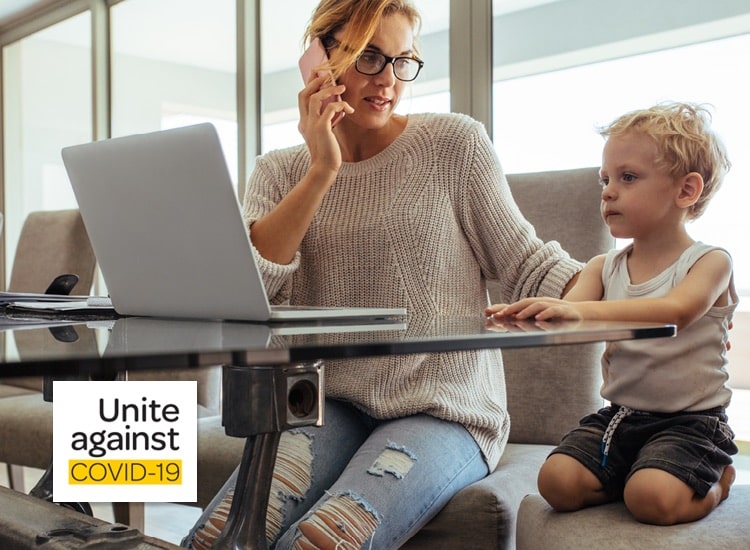Level 4 lockdown means that many New Zealanders are being forced to work and live at home 24/7 with an abusive partner, family member, or flatmate – with very few options to get away or get help.
While additional stress created by the impact of lockdown on jobs, finances, unwell or elderly family members, and childcare does not cause domestic violence, these factors may heighten the risk of physical abuse and more serious violence.
We encourage employers to take these steps:
- DO NO HARM. Well-intentioned efforts to communicate with employees living with an abusive partner may end up further endangering them. ALWAYS be careful about communicating with an employee at home who you know or suspect is experiencing domestic violence. Always assume that an abusive partner is hearing or seeing your communication, and avoid in any way alerting them that that you know or suspect the abuse. If you need advice about how to help someone you are concerned about, ring Shine’s Helpline or one of the family violence helplines listed below.
2. If you provide an essential service and thus need some staff to work onsite, consider whether you may offer your people the option of working from the office if they are unsafe at home, or worried about their own behaviour at home. If you are able to offer this, let staff know who to contact to make the necessary arrangements.
3. Provide information about help for domestic violence in messages clearly sent to ALL staff, so that no one – especially abusive partners/family members – will feel that an employee is being singled out. It is a good idea to include information about domestic violence along with mental health and other wellbeing issues and helplines such as Lifeline etc, and use a generic subject line (e.g. health & safety) so it’s not obvious to a household member glancing over someone’s shoulder what the email is about. It may also feel safer for someone in this situation at home to read and save this information.
You may want to consider letting your people know a code word or phrase they can use to get help from a particular person or people within your organisation that would not raise suspicions, and prepare identified people to speak to anyone who uses the code word by first asking if anyone in the household might be able to overhear the conversation, then asking questions that can be answered yes or no.
4. Here is important information to provide to your people:
- If you or anyone else is in immediate danger, ring 111. The 111 Operator will ask which emergency service you need. If it is not safe to talk and you remain silent: 1) Calling from a mobile, a recorded message will ask you to press 55 for emergency assistance, which will transfer you to police. 2) Calling from a landline, the Operator will ask you to press any number for emergency assistance, which will put you through to police. Police will then ask you yes/no questions to answer by pressing keys on your phone. Read more about the silent solution.
- Family violence helplines, refuges and other crisis services are considered essential services and will continue to operate during lockdown.
- See below for a list of specialist family violence helplines, including online chat options if it’s not safe to talk. There is also support below for anyone worried about their own behaviour with a family or household member.
Family Violence Specialist Helplines:
National employers can share these helplines with their staff. Employers with sites in only one city or region may want to (also) share information about local domestic violence services, which can be obtained from one of the helplines listed below.
For women experiencing family violence:
- Women’s Refuge – 24/7: 0800 733 843, 24/7 www.womensrefuge.org.nz
- Help via online chat through Women’s Refuge Shielded Site without leaving a browser history– click on this icon in the footer of stuff.co.nz, thewarehouse.co.nz, bunnings.co.nz and many other websites

For anyone experiencing family violence, worried about their own abusive behaviour, or supporting someone else in these situations:
- Shine Helpline – 24/7: 0508 744 633 OR chat online with Helpline staff at www.2shine.org.nz
- Are You OK – 9am to 11pm, every day: 0800 456 450 www.areyouok.org.nz
For men worried about their own abusive behaviour:
- 0800 Hey Bro: 0800 439 276 – 24/7 (for men who feel they’re going to harm a loved one or whanau member) www.hewakatapu.org.nz/services/0800-hey-bro
For anyone who experiences sexual harm:
- Safe to Talk – 24/7 (sexual harm helpline): 0800-044-334 OR text 4334 – 24/7. Chat online at www.safetotalk.nz
- In addition to how to get help, it’s more important than ever during lockdown to communicate key messages about family violence to your staff:
- Family violence is not OK, but it is OK to ask for help.
- It’s OK to ask for help whether you are experiencing family violence or worried about your own abusive behaviours.
- Family violence is abuse within a family relationship, which is defined by NZ law as intimate partners or ex-partners, any family or whānau relationship, anyone sharing a household (flatmates) or any two people with a close, personal relationship. Family violence is not just physical violence, but a range of behaviours that have the intention or effect of coercing (making someone do something using force or threats) or controlling someone.
- Ring 111 for police if you or someone else is in an emergency situation being physically hurt or threatened by someone. If it is not safe to talk, on your mobile then push 55 to be put through to Police, on your landline push any key.
Overall advice for employers on responding to employees who experience or perpetrate domestic violence is available in the DVFREE Guidelines, which are free to download.
